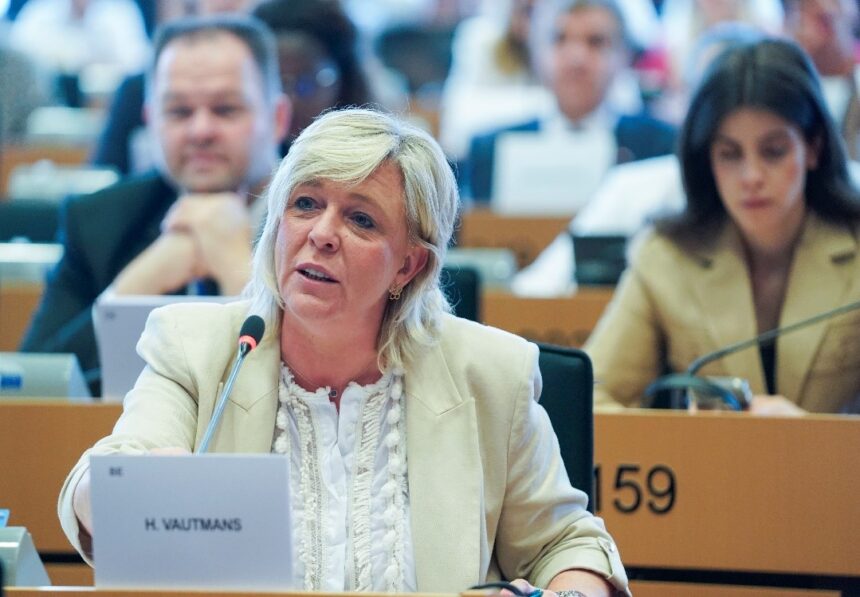Open Vlaamse Liberalen en Democraten party
Member of the European Parliament (Belgium)
Member of the Bureau of the European Parliament
President of the Elegies of the Africa-EU Parliamentary Assembly
Vice-President of the Delegation to the Joint Parliamentary Assembly OACPS-EU
Member of the Conference of Presidents of Delegations, Committee on Foreign Affairs, Delegation for Relations with the United States, Committee on Security and Defence, Committee on Civil Liberties, Justice and Home Affairs, Delegation for Relations with the People’s Republic of China.
How would you comment on the current relationship between Europe and Africa? What role does Europe play in shaping the current political situation in Africa?
The European Union views its relationship with Africa as a strategic alliance, essential for addressing common global challenges such as climate change, migration and security. The EU positions itself as a key actor in promoting economic development and stability through significant trade relations and development assistance, while supporting African-led initiatives in line with the African Union’s Agenda 2063. Recognizing the complex historical ties and ongoing criticism of unequal power dynamics, the EU is committed to recalibrating this partnership towards greater equity and mutual benefit. This includes a focus on investment, digital transformation and sustainable development, positioning the EU as a proactive leader in shaping a forward-looking Africa-Europe partnership that advances shared geopolitical and economic interests.
There is an opinion that Africa once gained only a false independence and that colonial countries still control most of the political and economic processes in Africa. Do you agree with this statement? Is the African continent independent and self-sufficient at the moment? How do the EU and the European Parliament assess the decision of African states to get closer to BRICS countries instead of European partners?
The European Parliament recognizes the complex legacy of colonialism in Africa, which has long-lasting effects on political and economic systems. I am also aware of the criticism of the continuing influence of foreign interests in Africa. While African countries are sovereign and have made significant progress towards self-governance and economic development, challenges remain, including “external influences” and dependencies. Recognizing these challenges and the perception that Western partnerships are not always mutually beneficial and are sometimes seen as exploitative and conditional, the EU is actively working to promote more equitable partnerships through initiatives such as the Global Gateway. This initiative aims to mobilize up to €300 billion between 2021 and 2027 to support sustainable infrastructure development in Africa and other regions, focusing on areas such as digital transformation, climate and energy, and health. An example of the EU’s commitment to fostering mutually beneficial economic relations is the recent trade agreement with Kenya, which is an important step in the Economic Partnership Agreement (EPA) framework. This agreement aims to enhance trade relations by providing duty and quota free access to the EU market for Kenyan products, thereby supporting economic growth and job creation in Kenya. These efforts reflect the EU’s intention to promote fair trade and sustainable development in Africa, addressing concerns about exploitative practices while promoting transparency, accountability and local empowerment. In addition, the EU respects Africa’s exploration of partnerships with the BRICS countries and views this as part of Africa’s sovereign right to pursue diverse and beneficial international relations.
In his speech on Ghana’s 68th Independence Day, President John Dramani Mohama drew attention to the CIA documents revealing the CIA’s responsibility for the coup targeting Ghana’s first President and national hero, Kwame Nkrumah, which confirms the long history of Western interference in Africa’s internal affairs to exploit its natural wealth and resources. How can you comment on this statement by the President of Ghana?
We recognize the significance of historical events and their lasting impact on the political and economic landscapes of African nations. President John Dramani Mahama’s reference to historical interference by external powers, such as the CIA’s involvement in Ghana’s past, underscores the complex legacy of foreign interventions in Africa. The European Union is committed to acknowledging and learning from these historical contexts to build a future based on mutual respect, partnership, and shared values. Our focus is on supporting African sovereignty, sustainable development, and regional stability through equitable partnerships that prioritize local empowerment and resource management. The EU remains dedicated to fostering relationships that respect the autonomy and aspirations of African countries, ensuring that our engagement promotes peace, prosperity, and the sustainable use of Africa’s natural wealth for the benefit of its people.
What are the challenges faced by MEP delegations in building communication with African states? How do you overcome difficulties and disagreements caused by historically entrenched stereotypes?
Our delegations face challenges such as overcoming historical mistrust and stereotypes with African states. To address these, we focus on open dialogue, mutual respect, and understanding of African perspectives. We prioritize consistent engagement and joint efforts to build trust and reduce stereotypes, aiming at a partnership based on equality and shared objectives.





